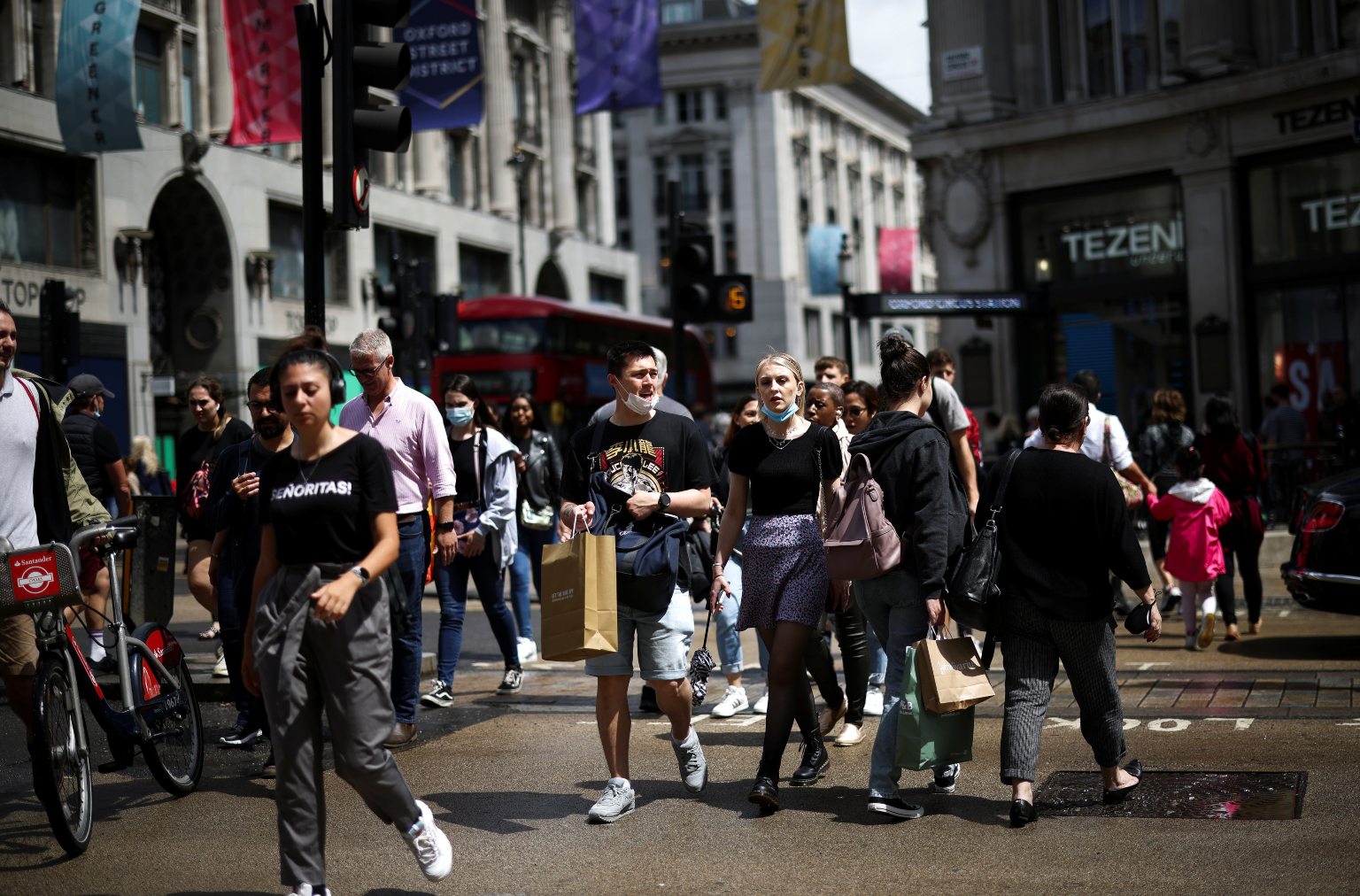No face masks, no social distancing when England ends Covid-19 restrictions on July 19
Sign up now: Get ST's newsletters delivered to your inbox

The rules are lifted in a decisive shift from legal requirements to personal responsibility.
PHOTO: REUTERS
Follow topic:
LONDON (BLOOMBERG) - British Prime Minister Boris Johnson announced plans on Monday (July 5) to end social distancing and capacity limits at venues in England from July 19, saying that people must learn to live with coronavirus.
Face masks will be made voluntary in all settings and the government will no longer instruct people to work from home, in a decisive shift from legal requirements to personal responsibility.
All remaining businesses will be allowed to open, including nightclubs, and none will be required to demand any proof of vaccination or testing before entry. The final decision will be still need to be confirmed on July 12.
Ministers believe the link between virus cases and hospital admissions has been severely weakened, but not broken, by the vaccination programme.
Cases will continue to rise as people are allowed to mix more freely and these will lead to more hospitalisations and deaths, the government case goes, but at a much lower level than before vaccines were rolled out.
"If we can't open our society in the next few weeks, we must ask ourselves when will be able to return to normal," Mr Johnson said at a news conference.
In an interview with the BBC Radio 4 Today programme, Health Secretary Sajid Javid said that case numbers could reach as high as 100,000 cases per day by August.
"This is uncharted territory for anyone, any country in the world... But I said this in parliament yesterday, that by the time we get to 19 July we would expect the case numbers by then to be at least double what they are now - so around 50,000 new cases a day," Mr Javid said.
"As we ease and go into the summer, we expect them to rise significantly and they could go as high as 100,000 case numbers. We want to be very straightforward about this, what we can expect in terms of case numbers. But what matters more than anything is the hospitalisation and death numbers, and that is where the link is really weak."
Vaccination race
The UK is racing to vaccinate the population against the fast-spreading Delta variant of the virus; 64 per cent of adults have had two doses so far. That figure is not high enough for some scientists who warn that lifting virtually all restrictions now - when millions are still not fully immunised - could prove devastating.
Mr Johnson announced the vaccine programme would be accelerated for people aged under 40, reducing the interval between doses from 12 weeks to eight.
People will still be legally required to self-isolate if they test positive for Covid-19 or are asked to do so by the Test-and-Trace programme. But Mr Johnson signalled his intention to allow double-vaccinated people who are identified as contacts of Covid-19 cases to be exempt from self-isolation rules. Further details are expected to be announced later this week.
The government is also working with the travel industry to remove the need for people who had two shots to quarantine on return from an amber-listed country.
Plans to remove the school "bubble" system in England are also likely to be set out in the coming days. The final stage of the government's road map was delayed by four weeks last month to allow more people to be vaccinated, a decision that ministers believe has saved thousands more lives.
No more limits
The new rules mean there will no longer be any limits on social contact; currently only six people can gather indoors and 30 can meet outdoors. There will be no more limits on the number of guests at life events such as weddings and funerals, and the "one metre plus" social distancing rule will be lifted everywhere except in a few limited settings including ports of entry.
All capacity limits in theatres, sporting arenas and concert halls will be lifted. People will be able to queue at the bar once more, with no legal requirement for face coverings, and QR code sign-ins will no longer be legally enforced.
No proof of vaccination or negative test will be required for entry into any venue, after officials warned that the overall impact of a Covid status certification scheme would be disproportionate to the public health benefit at this stage of the pandemic.
It will be up to individual employers to decide the pace and level at which they want employees to return to the workplace.

